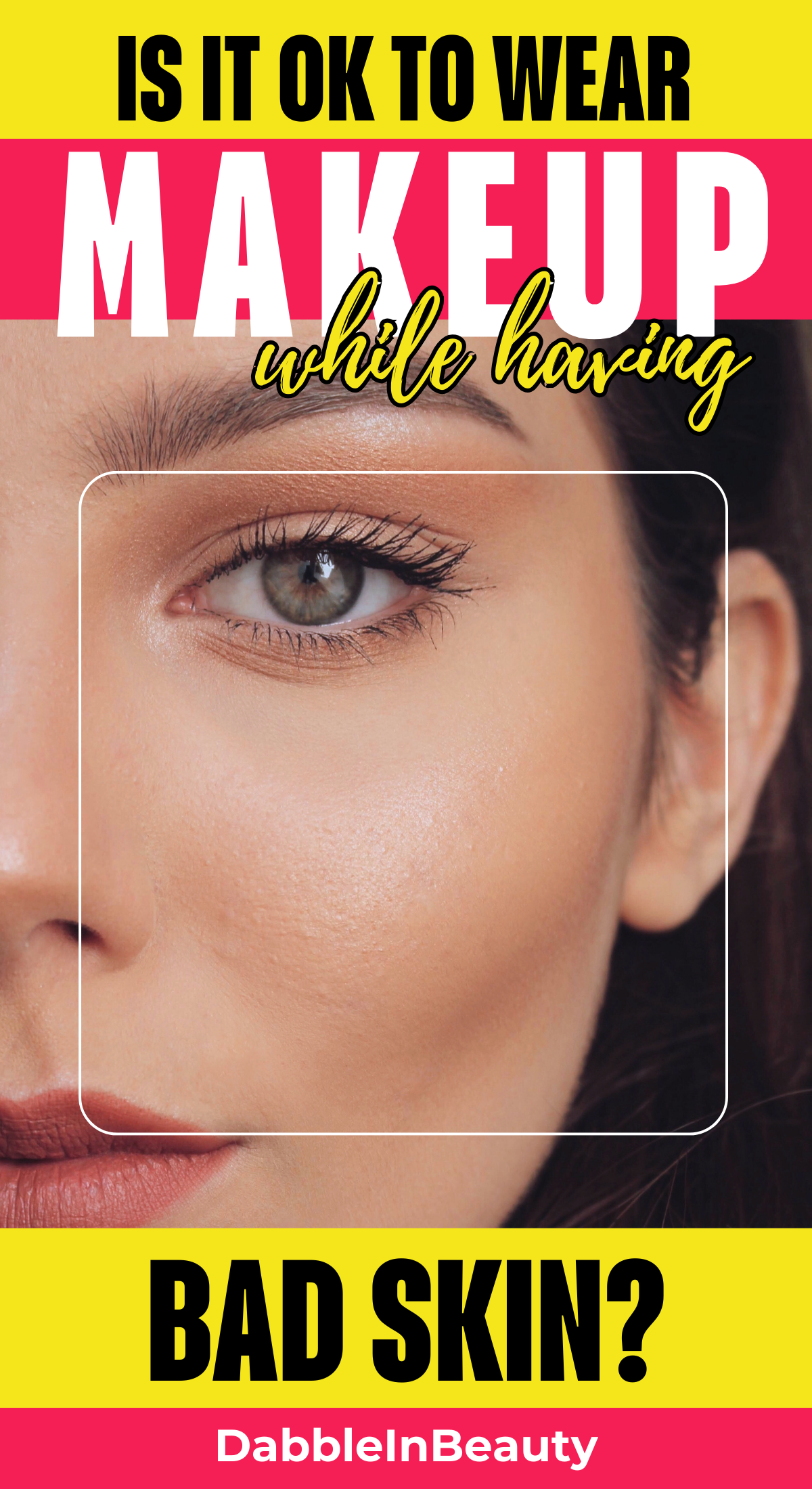Having breakouts is the worst. Your first reaction might be to cover up the zit even before anybody notices it. Reaching for a tube of foundation or concealer is usually the fastest method to make a breakout go away, but is that the healthiest thing for your skin over the long term?
What, then, is the truth?

Should cosmetics be used when acne is noticeable, or should the skin be kept bare? Inflammatory microorganisms, hormones, and oil production all contribute to acne. Makeup, especially oil- or liquid-based foundations, might exacerbate breakouts if you are already prone to them. Sometimes a breakout can be directly related to cosmetics.
What Problems Can Makeup Cause?
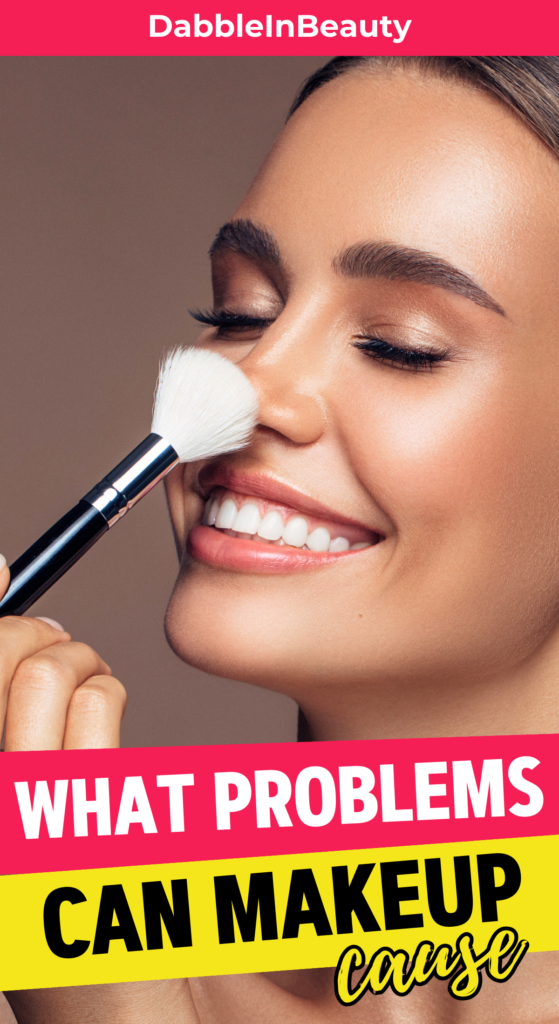
Breakouts happen when germs, oil, debris, skincare products, dead skin cells, and other small particles become caught in your pores. In some situations, a painful infection with red, inflammatory pimples results. You’ll notice clogged pores, blackheads, and whiteheads occasionally.
Makeup has the drawback of adding yet another layer of dirt to your skin. Cosmetics can make your skin oilier, make your pores less self-cleaning, and introduce bacteria. In addition, touching your face to apply makeup can aggravate pimples, and some cosmetic formulations can irritate sensitive skin.
This is not to say that you should forgo a flawless finish or that all cosmetics are awful just because you have a breakout. However, you’ll need to take measures to lessen the damaging effects cosmetics have on your skin because it raises your chance of breakouts.
Even if wearing cosmetics makes your acne worse, you can still do so while having clearer skin. But you’ll need to use different cosmetics.
Here are some tips from dermatologists for clearer skin.
1. Choose your makeup wisely
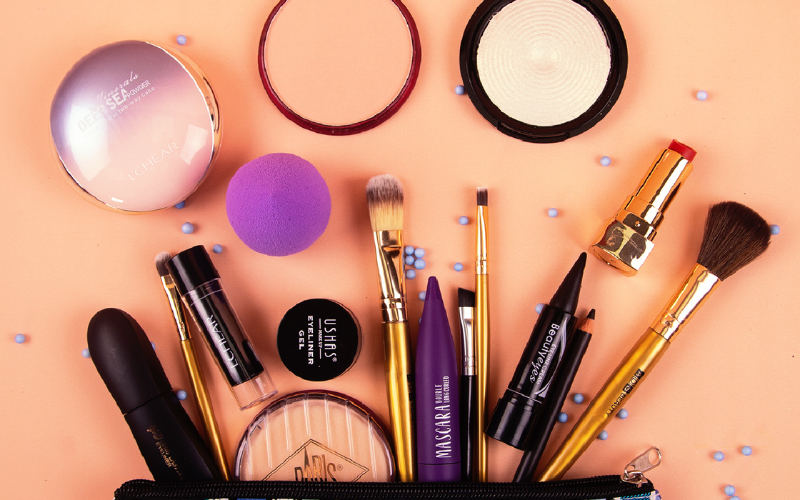
It would help if you ceased applying any makeup contributing to your breakouts immediately. However, it can be challenging to determine the exact cause of your acne. The best approach is to carefully read the labels on your cosmetics, skincare, and hair care products.
2. Wash makeup before bedtime
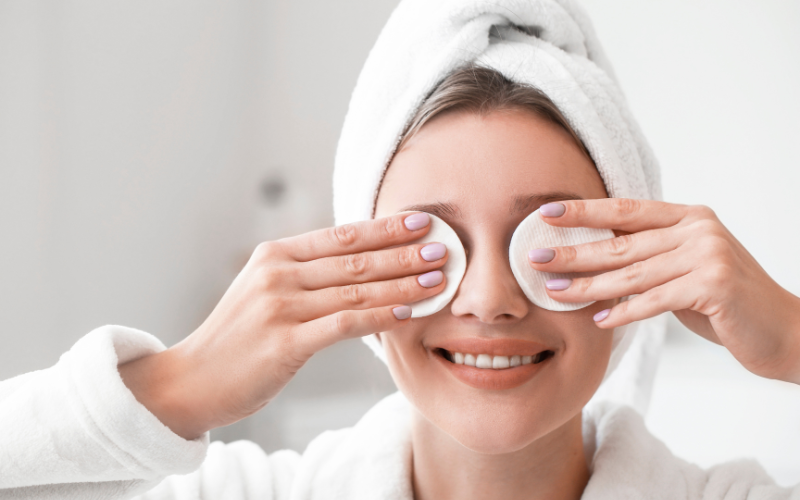
Before going to bed, you should always wash your face to remove any makeup. Does this also hold for mineral makeup? Of course, it does. Despite what the advertising suggests, you shouldn’t sleep in your mineral makeup. Make sure to always wash your face before bed. Sweat, grime, and extra oil are also removed by a regular evening washing procedure in addition to makeup.
3. Address the root cause of acne
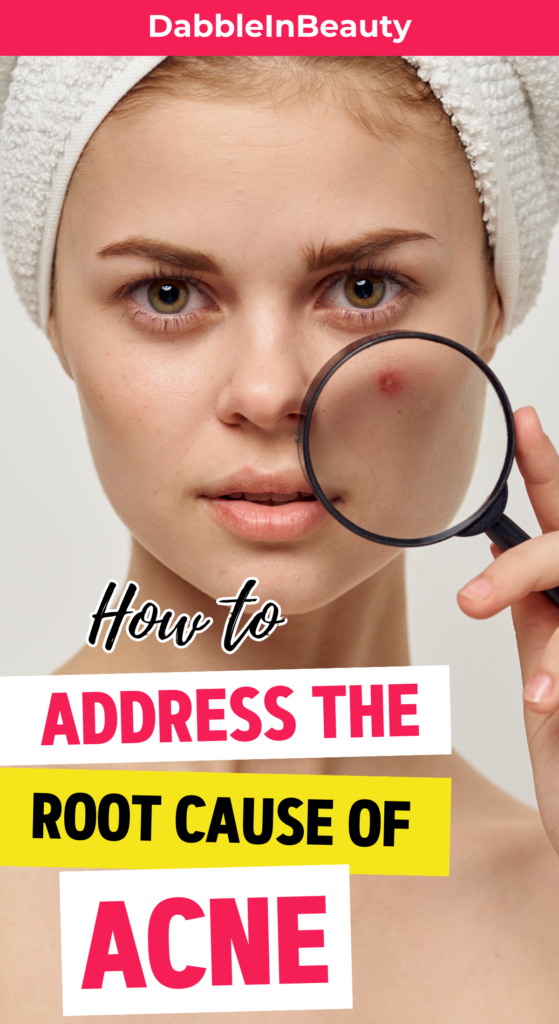
- Whatever the people around you may claim, it’s unlikely that cosmetics are the root of your acne. Instead, three factors primarily contribute to acne:
- Overactive oil glands.
- An abundance of dead skin cells.
- The growth of bacteria that cause acne.
- These elements are all hereditary in nature, and they are unrelated to how you choose to apply makeup. For example, even going bare-naked every day for a year wouldn’t be sufficient to clear up your skin.
4. Clean your makeup brush
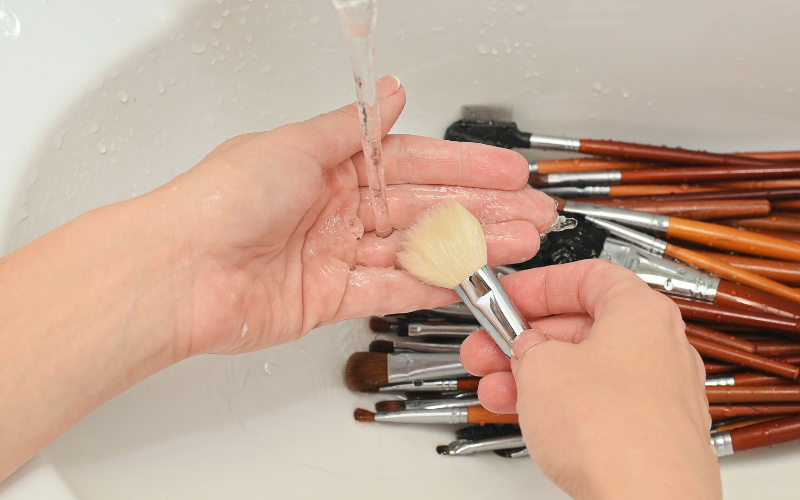
Make sure you are the only person using your makeup brushes by cleaning them once a week. Although acne is not contagious, oil, dead skin cells, and bacteria that cause acne can adhere to your makeup, makeup brushes, and cosmetic application tools. These acne-causing agents can transfer to your skin using shared cosmetics and utensils, resulting in fresh breakouts.
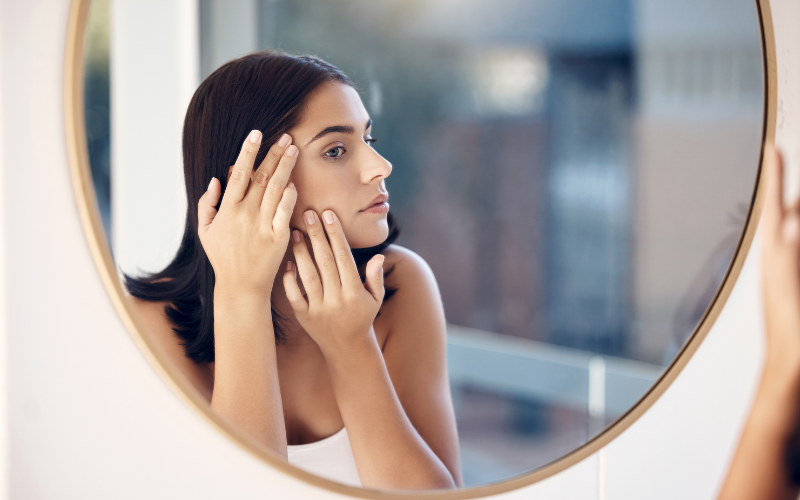
Skin care requirements for each individual are essential. Some people with sensitive skin find it challenging to use makeup items, but this needn’t stop you from using them. However, you must be sure you’re taking action to tackle your skin issues.
